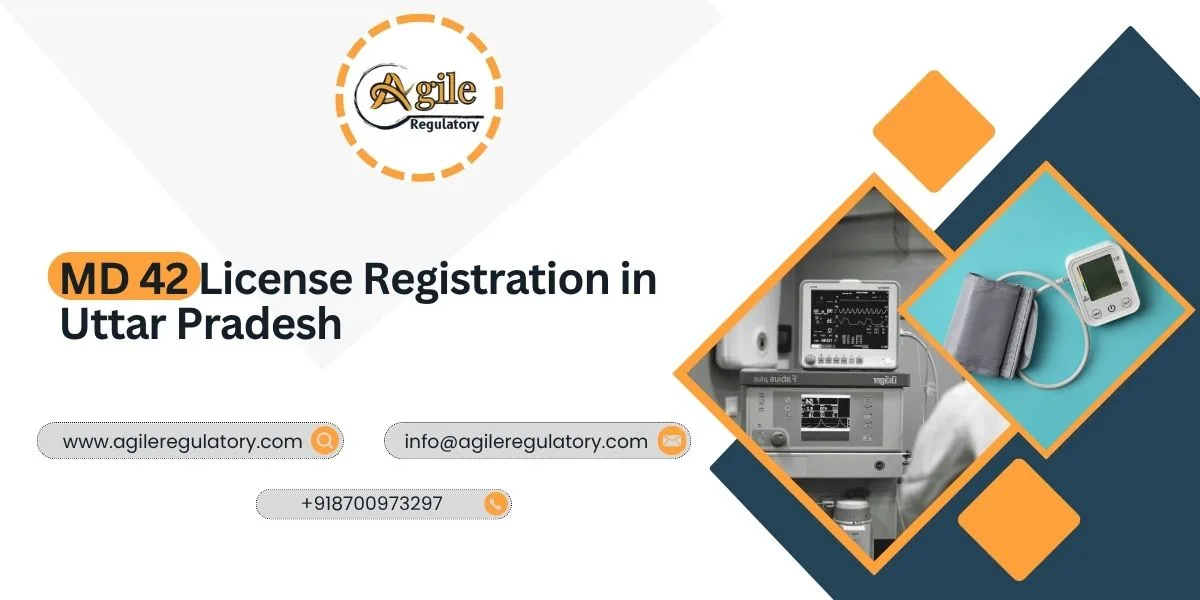
Get Instant Solution By an Expert Advisor
(4.8)


India is one of the biggest producers and consumers in the world that produces and offers domestic and international consumers to its customers. Often, businesses employ several marketing and promotional activities to attract consumers, retain them by offering a variety of goods and services, and ultimately gain their trust.
The promise of both safety and quality for consumption of any goods, such as toxins-free, environmentally conscious, etc., nevertheless one of the most significant qualities that consumers look for.
Hence, it is the responsibility of the government to ensure that the people of the country have access to quality products that are safe to use, made from thoroughly tested raw materials, and manufactured using standardized techniques that meet international standards, thus launching the Bureau of Indian Standards (BIS).
BIS, or Bureau of Indian Standards, is an Indian National Standardization body established under the BIS Act 2016. It was built to promote the orderly advancement of product standardization, marking, and quality certification, as well as for any related or incidental issues.
Through standardization, certification, and testing, BIS can reduce consumer health risks, promote import and export alternatives, and rein in the spread of varieties, among other things, while still contributing traceable and tangible advantages to the national economy.
In addition, the BIS grants BIS Certification to give consumers third-party assurance of the dependability, quality, and safety of products.
Thus, the Government of India mandated via notification in 2012 that no person shall produce, sell, or keep items for sale or import that do not comply with the Indian Standard as stipulated in the regulation and display a standard mark with a BIS unique registration number.
The Bureau of Indian Standards (BIS) in India is the organization responsible for issuing and overseeing BIS Registration and compliance. BIS certification assures buyers that the product is qualified by BIS and is safe for use. BIS offers multiple schemes like quality certification, product testing, hallmarking schemes, calibration schemes, etc.
BIS Certification program is primarily voluntary. However, the Government of India has expressly notified around 350+ products to be compulsorily registered and to comply with Indian standards mandatorily due to several concerns, including the general public welfare, safeguarding of humans, animals, or plants, environmental protection, the avoidance of unfair trade practices, and national security. The Government of India mandates the products to bear the Standard Mark under a Certificate of Conformity (CoC) or Licence from BIS through the issuance of QCOs.
Launched by the Ministry of Electronics and Information Technology (MeitY) under the Government of India in 2012, the BIS Compulsory Registration Scheme mandated the compulsory registration of 15 different types of electronic products. Later, the Compulsory Registration Scheme was expanded to include a few additional electronic and information technology items.
As a result, anyone involved in the production, storage, or distribution of products intended for import or sale that fail to comply with the specified Indian Standards and lack the required BIS certification mark is in breach of the regulations. Producers can obtain this number under CRS by submitting Form-I through smart registration and self-declaring compliance for each product.
Certification For Domestic Manufacturers Under the ISI Mark Certification System (Scheme-I), Products falling under Scheme-I shall follow the procedure laid out to get BIS certification for all products covered by the plan. To participate in this scheme, the applicant must submit an application in Form V along with the necessary paperwork.
Here, the issuing authority will carry out an initial factory assessment, gather samples, test them, and produce a testing report. If the product meets the confirmed quality standards, the BIS will issue a certification. The BIS certification procedure under this scheme is typically completed in four to five months.
Under the Foreign Manufacturers Certification Scheme (FMCS), the BIS issues a BIS certification to foreign applicants or manufacturers within six months. For international applicants to be allowed to receive and utilize the ISI label on their goods, the FMCS system was first set up in 2000.
Apart from the IT and electronics goods stipulated by MeitY, this scheme qualifies for the certification of all products. The Foreign Manufacturers Certification Department, which is situated at the BIS headquarters in New Delhi, is responsible for granting licenses under FMCS.
BIS certification is awarded for ecologically friendly products under the ECO Mark scheme. To earn an ECO mark from BIS, all environmentally friendly products must first meet the essential criteria set by Indian Standards. The ECO logo, alongside the ISI mark, is then merged into a single certification that is proudly displayed on qualifying products.
The BIS approves the use of the 'ECO' logo on the products, and together the ECO logo and mark are indicative of the fact that the product meets the criterion for environmental sustainability as well as other relevant BIS standards. When a manufacturer currently has a valid BIS certification mark for an existing product and wishes to receive an ECO mark for a new product, the manager must make a specific request to the BIS.
In pursuance of this, BIS shall provide the BIS certification under the ECO mark program in accordance with the stipulated procedures.
Hallmarking is the proper assessment and formal documentation of the proportionate content of pure metals like gold and silver. Accordingly, hallmarks serve as assurances of the quality and refinement of precious metal items. The hallmarking scheme seeks to safeguard consumers against adulteration while also requiring manufacturers to adhere to regulatory fineness criteria.
In India, the only commodities brought under the purview of hallmarking are gold and silver. Any jeweler can submit an online application on the portal for the registration certificate to sell gold and silver jewelry to receive the hallmark. Once granted, the registration has a validity of a lifetime.
1. Assurance of quality and pre-defined standards: BIS comprehensively approaches quality compliance implementation for all manufacturers. Entities having a BIS registration are expected to manufacture their products to a specific quality standard. BIS investigators undertake surprise inspections at the place wherein the production is usually carried out.
2. Symbol of Genuineness: Products lacking any quality assurance may be sold overnight but they cannot gain the reputation or trust of the client. Uncertified products are likely to function poorly and constitute a health risk. Unfortunately, a great many end users are unaware of this information. Contrarily, among the primary benefits of BIS registration is that BIS-approved goods ensure superior performance and unparalleled quality, leaving no scope for complaints or issues.
3. Minimization of environment-related risks: BIS certification includes more than 900 diverse categories of goods, some of which are potentially hazardous to the environment& human health, such as electronics items, To combat this, the BIS authority has taken several steps, including building a conclusive procedure to reduce environmental risk and prohibiting the use of certain materials and substances.
4. Quality Control Testing: Since BIS focuses on quality standardization, it has established cutting-edge labs around the nation. During the on-site inspection, the investigating authorities randomly choose certain samples from their registration facilities and deliver them to the lab for analysis. Once it has been approved, the product will be returned along with the test results.
BIS registration could either be applied through online or offline. To make an application through online mode, the following steps should be followed:
Step 1: Create a login ID along with the password. To acquire login credentials, applicants need to fill in certain basic details, such as name, email ID, date of birth, nationality, and phone number, to register themselves on the BIS MANAK portal.
Step 2: Fill & Submit Application: Click on the application and fill out the form with all the requisite details. Once done, upload pdf copies of the documents required.
Step 3: Verification of the Application: A preliminary inspection by a BIS inspector will occur at the factory, and then samples of the product will be tested. The ultimate result will be decided by the BIS officer once the process of evaluation is complete.
Step 4: Plant Visit and Preparation of Report: The inspection authority will go to the factory to validate the test results and then forward the specimens to the independent testing laboratories. The evaluation report will either include suggestions or a summary of the complaints of the investigation.
Step 5: Grant of Registration Certificate: Following the necessary evaluation procedure, an in-depth report is created and the applicant is then granted a BIS certificate.
Obtaining the BIS Registration could be a bit challenging due to the amount of paperwork required and the processes involved. However, with the right amount of guidance, you could easily acquire BIS registration within the prescribed time. At Agile Regulatory, we are committed to helping budding entrepreneurs by enabling them to acquire business licenses smoothly and carry on their businesses.

 Nishi Chawla
Nishi Chawla
14 Oct, 2025

 Nishi Chawla
Nishi Chawla
14 Oct, 2025

 Nishi Chawla
Nishi Chawla
13 Oct, 2025

 Nishi Chawla
Nishi Chawla
13 Oct, 2025

 Nishi Chawla
Nishi Chawla
07 Oct, 2025

Get Instant Solution By an Expert Advisor
(4.8)
We simplify compliance through a proven 4-step process: Consultation, Documentation, Submission, and certification. From understanding requirements to getting final approvals, we deliver a smooth, timely, and fully compliant journey for your business.
What our customer says about us
Fantastic support from the team. Their expertise transformed our approach, driving remarkable outcomes. A must-have partner for businesses seeking effective consulting solutions. Highly recommended.

KTPL Instruments
Agile Regualtory delivers exceptional solutions. Their insightful guidance streamlined our processes and boosted profitability. Highly recommended for businesses seeking expert consulting services to thrive.

Justrack IOT
Impressed by Agile Regulatory's expertise. Their strategic insights and practical solutions have elevated our business operations. A reliable partner for effective consulting services. Highly recommended for growth-focused businesses.

Coaire Compressor
Extraordinary consulting services. Their insightful solutions and dedicated team reshaped our business, driving remarkable improvements. Highly recommend it for transformative results.

Easy Polymer
Incredible experience with Agile Regulatory. Their innovative strategies and expert advice revitalized our business model, resulting in impressive growth. Highly recommend their exceptional consulting services.

Tarus International
Top-tier consulting! offered strategic solutions that revolutionized our approach. Their deep expertise and personalized guidance made a significant impact on our success. Highly recommend their services.

Anchor Weighing
Agile Regulatory exceeded expectations! Their tailored solutions, expertise, and proactive approach led to remarkable results. Highly recommend for businesses seeking impactful and strategic guidance.

AM Capacitor
Outstanding service! delivered targeted solutions with professionalism and expertise. Their insights elevated our business strategies, resulting in noticeable growth. Highly recommended for exceptional consultation.

Imaxx Pro Aquistic
Leave a Reply
Your email address will not be published. Required fields are marked *